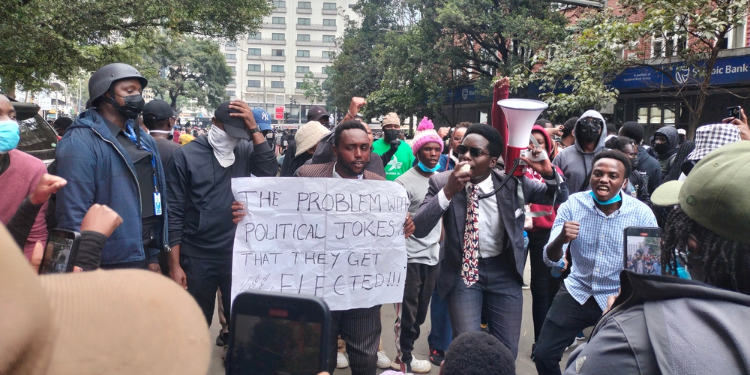
The latest tax reform in Kenya has sparked intense protests and unrest. The BBC and France 24 report that at least 39 people were killed during the protests, while local news outlets say the death toll rose to 19 people. The situation has escalated and is drawing international attention and concern.
The tax reform causing the protests
The finance bill that ignited the protests meant to introduce taxes and fees on a range of everyday items and services. Namely, a 16% value-added tax (VAT) was proposed on essential items like bread and diapers. Tax increases on internet data, fuel, bank transfers, and other services were also part of the bill. The Kenyan government justified the tax hikes as part of an effort to collect extra money in domestic revenue. However, with the already high cost of living in the country, the new tax rules will make the lives of many of its citizens very difficult, including expats.
The response from the local population has been outrage and despair. Many people have taken to social media to voice their opposition to taxing basic necessities. For many Kenyans, the increased financial pressure will exacerbate the financial struggles they already have to deal with on a daily basis.
It's important to note that the aggressive reaction to the Finance Bill 2024 has deeper roots. One key promise of the current president's election campaign was to ease tough living conditions for the lower-earning population and crack down on corruption. However, a lot of Kenyans feel that the president hasn't delivered on his promises. In particular, during his term, William Ruto has implemented several hikes in taxes with no improvements in social amenities to match. For instance, a new tax law in 2023 doubled the taxes on fuel.
The biggest issue was that the tax hikes came at a time of a complete economic crisis in the country, with the Kenyan shilling dropping by 22% against the USD in 2022. The prices for basic food items, public transportation, and energy soared. But the incomes of most Kenyan citizens remained the same.
Xenia, who lived in Nairobi in 2023, remembers the price hikes and how they worried her Kenyan colleagues. “I remember that throughout my stay in Nairobi, prices for everyday things just kept going up. It wasn't much, but it was noticeable, even for me, on my USD salary. My friends always talked about ways to save money and where they could buy food at “old” prices. It's easy to understand their frustration.”.
The impact on expats in Kenya
The new tax reform also presents challenges for expats in Kenya. The increased cost of living associated with the higher taxes will affect everyone living in the country. It is true that some expats in Kenya, especially those working for international companies or in diplomatic missions, generally have a higher income compared to the local population. For them, the proposed tax increases may not be quite as devastating. However, the instability and violence related to the protests do pose a direct threat to personal safety in the country.
Businesses operated by or employing expatriates are also likely to face disruptions. This will be due not just to the economic impact of the proposed tax increases but also to the operational challenges related to street protests and the government's response.
Government response to the protests
Kenyan President William Ruto has deployed the military to calm the protests. He also voiced the government's tough stance against "violence and anarchy." The measures used to curb the protests have been highly controversial so far. There have been numerous reports of riot police using live ammunition against protesters, and multiple deaths have been reported.
The international community has publicly expressed concern over the violence and urged Kenyan authorities to find a peaceful resolution.
Despite the heavy crackdown and casualties, the protesters seem to have achieved their goal. President William Ruto said that he would not be signing the controversial tax bill. However, some critics believe that this is a temporary rollback meant to buy more time and calm the unrest.
Safety in Kenya
A number of embassies have already issued warnings to their citizens about Kenya being an unsafe destination. A video published by 7NewsTV shows a crowded airport with primarily foreigners waiting to check in for flights out of the country.
While the initial goal of the protests may have been achieved, the violent response form the government and as well as the country's complicated economic situation are pushing many protesters to take to X (formerly Twitter) with calls for more protests this week. Some are demanding for the president of the country to resign.
In anticipation of new protests, Nairobi will continue to have a heavy presence of security personnel.
Therefore, expats who find themselves in Kenya during this time and do not plan to leave the country are advised to exercise caution. If you are not yet registered with your embassy, you may want to reach out and let them know of your situation and current location. You can always contact your embassy for information and assistance in case of an emergency.
Stay informed about the situation via international news websites but also local channels as they will be responding to new developments more quickly.
Do your best to not be present in areas where protests take place. Steer clear of large gatherings and demonstrations, even if they look peaceful.
Overall, it's essential to be vigilant and extra careful at times like these. Connect with other expats if you are feeling anxious, seek information from your embassy and local sources, and be respectful of the local community and the difficult situation they are going through.




















Comments